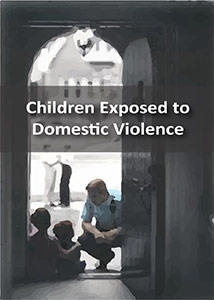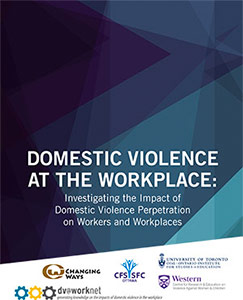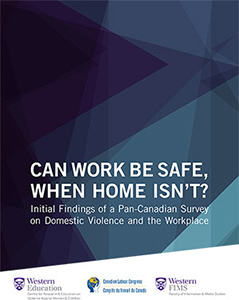Centre for Research & Education on Violence Against Women & Children (CREVAWC)
About the Project
In 2017, Research Western began creating a series of digitally linked heritage plaques to celebrate significant research-related moments in the university’s history, and to encourage the campus community and its visitors to learn how these contributions have benefited the social, financial, cultural and medical well-being of citizens in Canada and abroad.
During the active years of the program, two plaques, voted on by the Western community, were cast: one from a STEM discipline and one from a social sciences, arts and humanities-based discipline. Each were affixed to a relevant building on campus and provided a link to additional media online.
In the aftermath of the 1989 Montreal Massacre, where 14 young women engineering students were killed, the federal government commissioned a panel of experts on violence against women. They were to hold formal and informal hearings across the country to examine the depth of these problems.
The final report – released in 1993 and called, Changing the Landscape: Ending Violence, Achieving Equality” – made sweeping recommendations and identified the need for more applied research and community-university alliances. Soon thereafter, Health Canada and the Social Sciences and Humanities Research Council of Canada issued a call for proposals to establish five family violence and violence against women research centres.

In 1994, Western partnered with Fanshawe College and community services dedicated to improving services to abuse victims, perpetrators and their children (London Coordinating Committee to End Woman Abuse) to submit the successful proposal that established the Centre for Research & Education on Violence Against Women & Children (CREVAWC). Each of the five centres used their start-up funds to seek their own sustaining funding partnerships and Western’s centre found its home in the Faculty of Education – an ideal base given its commitment to preventative education.
The centre remains committed to the development and application of knowledge on the prevention of violence against women and children and vulnerable adults by promoting innovation, collaborative relationships and gender equality.
CREVAWC works with individuals, groups and institutions representing the community’s diversity to conduct interdisciplinary feminist research involving academic faculty and students, community-based professionals, government ministries and victim/survivors of violence. The centre’s research is action-oriented, informing education and training initiatives, and producing resource materials that include reports, learning briefs, newsletters, web-based resources, videos, online training and other products used by members of local, provincial, national and global communities.

Over the years, CREVAWC’s members have made invaluable contributions to research and practice in the areas of understanding violence against women and children, working from an intersectional perspective, preventing domestic homicide, creating safe schools, helping children exposed to violence, responding to sexual violence, implementing trauma-informed practices and addressing gendered workplace harassment and violence.
Centre staff and graduate students are often called upon to share their knowledge and expertise by serving on advisory councils and review panels for all levels of government. They also act as expert witnesses in court cases, as spokespeople in the media and as presenters at conferences and symposiums around the world.
CREVAWC’s research and education initiatives have informed government policy, most notably in areas of supporting children exposed to domestic violence; enhancing capacity for professionals to assess risk; training for health care, social services, education and justice professionals to increase awareness, assessment and intervention strategies for survivors of abuse; and labour legislation to provide support to survivors of domestic violence in the workplace.
The centre continues to celebrate its rich history and to move forward by working with a new generation of students across multiple disciplines, sharing information with new audiences and employing new technologies, including social media.
This commitment to ongoing outcomes-based scholarship has helped make CREVAWC a model for similar centres in Canada and across the globe.
Selected Outcomes
The 2014 National Survey On The Impact of Domestic Violence on Workers and Workplaces provided evidence that has led to legislative changes in labour employment standards federally and in several provinces. To date, the following changes have been implemented:
- Bill C-63 changes the Canada Labour Code to allow for 10 days of unpaid leave for federally regulated employees who are victims of family violence.
- Bill 8 changed the Employment Standards Code in Manitoba to allow for five days of paid leave and up to 52 weeks of unpaid leave for victims of domestic violence who are employed in Manitoba.
- The Fair and Family-Friendly Workplaces Act in Alberta changes the Employment Standards Code to allow for up to 10 days unpaid leave for employees who experience domestic violence.
- Bill 604, An Act to Provide Support for Victims of Domestic Violence provides employees in Saskatchewan who experience domestic violence with up to 10 days unpaid leave.
- Bill 26 made changes to the Employment Standards Act in Ontario that will allow employees to take a job-protected leave of five paid days, and an additional five unpaid days, if they or their children have experienced domestic or sexual violence.
- Employment Standards (Domestic Violence Leave) Amendment Act, 2017, proposes amendments to the British Columbia Employment Standards Act, which would provide up to 10 days of paid leave, and up to 17 weeks of unpaid leave, if the employee or the employee’s child has experienced domestic violence or sexual violence.
- On January 22, 2018, the Government of New Brunswick announced its intention to propose amendments to the Employment Standards Act that would allow for domestic or intimate partner violence leave.
CREVAWC was involved in efforts to change Ontario’s Occupational Health and Safety Act in 2010 through Bill 168, which introduced new responsibilities for employers to prevent and respond to violence, harassment and domestic violence in the workplace.
The centre was among the first to conduct research on children's exposure to domestic violence and recognizing this experience as a form of emotional and psychological harm. Policy and legal implications include recognizing this risk in children protection and child custody laws, and developing specialized treatment programs for children exposed to this violence.




